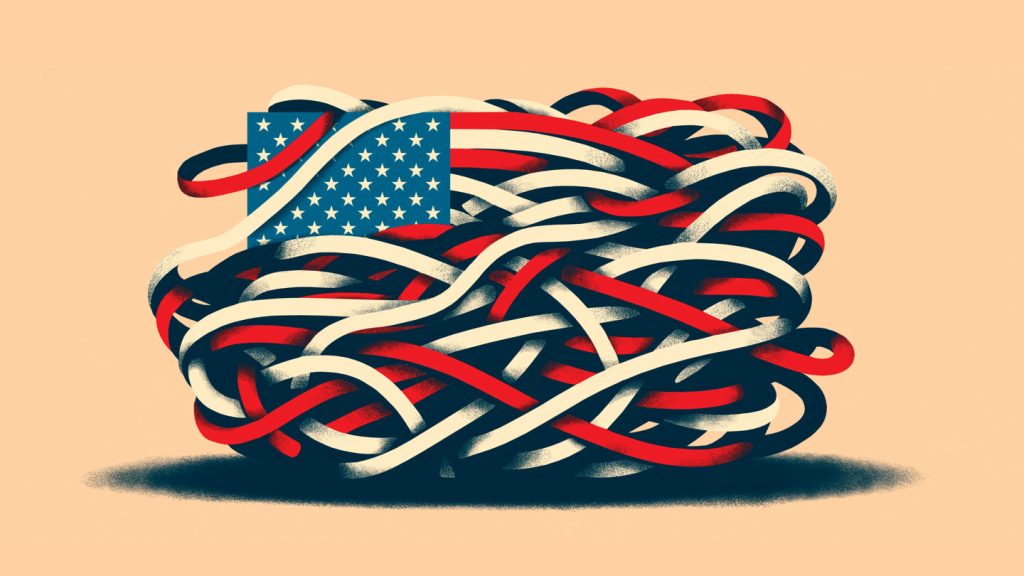The erosion of democracy in the United States is becoming a widespread concern, with many citizens and people in other countries expressing doubts about the country’s democratic practices. Polls conducted earlier this year revealed that a significant percentage of U.S. respondents, as well as those in countries like Canada, the United Kingdom, Germany, Japan, and South Korea, believe that American democracy has declined in recent years. The upcoming presidential election is seen as a potential threat to democracy, with voters divided based on party lines and concerns over the credibility of the electoral process following the 2021 attack on the Capitol by supporters of former President Donald Trump.
Political scientists use various metrics to measure the health of democracy, one of which is the Varieties of Democracy (V-Dem) project. This tool tracks changes in democratic systems by analyzing factors such as the level of inequality, citizen representation, and the strength of checks and balances. Recent data from the V-Dem project has shown a slight decline in the U.S. liberal democracy score, reflecting concerns about violence during elections, perceived limitations on opposition parties, and weakened checks and balances. The violent events of January 6, 2021, have raised alarm bells among experts, with many viewing them as a clear attempt to undermine the democratic process.
While some researchers argue that global democracy is not in decline, others point to a general shift towards autocracy over the past decade. Factors such as polarization, conflicts over belonging, economic inequality, and executive aggrandizement have historically threatened democracy in the United States. The recent insurrection on January 6, 2021, brought all these factors into play, leading to concerns about the country’s democratic stability. However, studies show that countries with wealth and long-standing democracies are less likely to revert to autocratic systems.
Political scientists emphasize the importance of identifying and addressing destabilizing forces within democratic systems, such as endemic inequality, polarization, and executive overreach. Populist leaders can exploit these factors to undermine democratic principles and consolidate power, as seen in countries like Hungary. Measures of democracy erosion show a nuanced picture, with some countries experiencing significant declines despite wealth levels that traditionally protect against such backsliding. Strengthening democratic institutions, such as the courts, media, and civil society, is crucial to maintaining democratic resilience.
Experts highlight the role of checks and balances in deterring threats to democracy, as seen in cases like Brazil and South Korea, where the courts played a critical role in upholding democratic norms. In the United States, strong points of democratic resilience include independent media outlets, vigorous political competition, and civic engagement. Empowering institutions and government leaders through public support and participation can help safeguard democracy from decline and ensure a peaceful transition of power in future elections.


